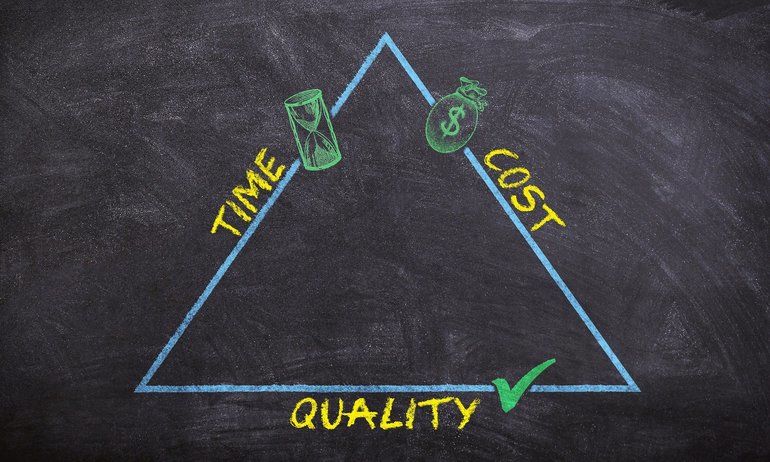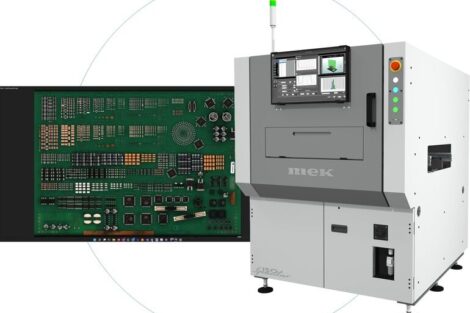Efficient operation is essential for any manufacturing business. Efficiency means more profits, better cash flow, reduced production costs, improved employee and customer satisfaction, and resilience against disruption. Conversely, inefficiencies cause existing problems to be compounded while unnecessarily draining finances and energy. Here, Eamon Francis, Managing Director at Delta Impact, discusses the adjustments that component manufacturing businesses can make to get them running at peak performance.
Think about procurement strategically and in the long-term
One of the major challenges currently facing the electronics industry is the shortage of key components and the extended lead times involved in securing them. While there’s no shortcut around component shortage (or indeed, the shortage of materials needed to make the components), employing a long-term procurement strategy combined with a thorough risk assessment is the best way to protect against future shortages and market volatility.
Sales forecasts allow you to use historical data to anticipate when in the year your need for certain components will be the greatest, and you can use this data to order your materials well in advance. This also allows you to strengthen your relationship with your suppliers by entering into a long-term arrangement and aligning your business goals.
Identify underperformance and weaknesses
When you are trying to make your manufacturing process more efficient, the first step you should take is to perform a full analysis and risk assessment of the business. Using analytics gives you concrete figures to work from in understanding the areas of your business that are underperforming. Manufacturing execution systems can provide real-time feedback and historical data, giving you a complete view of the efficiency (or inefficiency) of your production process. Operational performance, quality assessment and downtime can be measured using an MES, allowing you to make changes in the areas that will have the most direct impact on your business’s efficiency.
Embrace automation
Automation can improve the efficiency of your business in a number of areas, mainly by taking over menial tasks that take up your employees’ valuable time. Payroll, scheduling, ordering stock, processing invoices and many more manual tasks can all be automated.
Automatic reordering is particularly useful for improving efficiency. Interconnected sensor technology provides accurate, consistent stock control that triggers automatic reorders once stock levels are depleted past a set figure. This not only reduces labour costs but also reduces the risk of human error which can result in late deliveries or missing items and delay progress.
Provide regular training for employees
Employees who are not properly trained in their role or use of equipment will not be able to carry out their roles efficiently. This can cause them to become demotivated, further decreasing efficiency, increasing the risk of mistakes, and lowering the morale of your workforce. This is why you should provide regular training for your employees to ensure they can do their jobs effectively. Your employees should be kept informed of the goals of the business, as well as any operational or procedural changes. They should also receive regular training on the proper operation of the equipment that they use, as well as any new systems that are introduced. Well-trained employees will be able to carry out their roles more confidently and, should any errors occur, they will be better equipped to rectify them or report issues through the proper channels.
Be proactive and invest in technology
A proactive approach to damage control is far more effective than a reactive one. If a piece of equipment malfunctions, then the production line can come to a halt, causing an order backlog and wasted days of labour and energy while the problem is fixed.
All equipment can suffer malfunctions, but it is more likely to occur (and more frequently) with older machinery. Being proactive means replacing well-used parts before they break, and keeping all electronic systems updated with the latest software. In some cases, it may also mean you need to replace some of your older models with entirely new ones.
Efficiency within a component manufacturing business doesn’t just apply to the manufacturing process, it also applies to the mindset with which all business activities need to be approached. All activities within the business are symbiotic and improvement in one area will improve the overall efficiency of the operation. By the same logic, weaknesses in any area will make the entire business more inefficient.
Eamon Francis is the Managing Director at Delta Impact, who have been helping OEMs and CEMs to grow their businesses for over 30 years. They offer a wide range of EV cables and accessories including Type 1 and 2 Tethered, plus Type 1 and 2 charging cables. All are UL and TUV approved.










